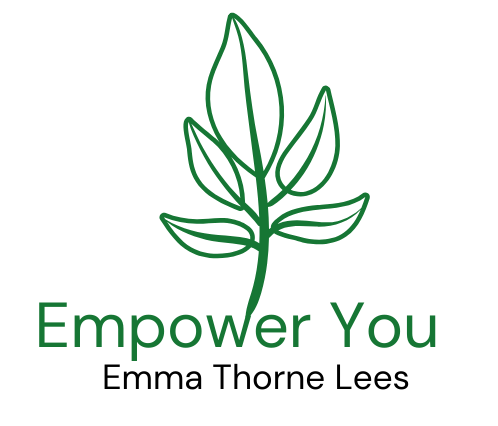Intuitive Eating – Honour your hunger
As I continue my journey into Intuitive Eating, this week I am learning about Principle 2, Honour (honor in the book) your hunger (Principle 1 was ‘Reject Diets‘). Honour your hunger – again this sounds pretty simple, as was rejecting diets, but easier said than done. After years of western conditioning and even more so if you have been a dieter/restrictor or had rules around food, it is far more challenging to pay attention to your body and hear its’ signals. I also like to look at this as nourishing your body – by paying attention to when it needs food/liquids/sleep/whatever and responding to it with what it needs most right then.

The Intuitive Eating book and workbook by Resch and Tribole, explains that if we don’t adequately feed our hunger and listen to its’ cues it can not only trigger overeating but also means we lack trust in our own body and what it needs and when, which can never be a good thing. This lack of trust seems so prevalent in today’s society. I know it is true for me, I have certainly been on many diets, taken on others’ rules or restrictions without ever really considering what my body is saying and just trying to overrule it with willpower or tricking my body into not feeling hungry (mainly by drinking more liquids) It is very common in western society that we externalise our trust and faith in others outside of ourselves, whether they be doctors, nutritionists, fitness instructors, celebs or friends. The only person that knows what my body needs and when is me.
Scientific need to honour our hunger
A body that has experienced restrictions or diets is more likely to operate in a famine state and can often respond by feasting whenever it sees it has safe access to food – nothing to do with willpower, just a sheer biological need to survive.
Scientific studies, for example Dr Ancel Keys‘, during the 2nd World War, have also shown that diets overall reduce metabolism, increase obsession with food, can affect personality and mental health. He found that this often resulted in a food obsession which was triggered by a biological survival mechanism and this study was done way before all the messages we also get exposed to in the media.
Tribole and Resch explained that restriction or food insecurity is actually a form of trauma for our bodies and leads to food insecurity which leads to us eating more generally. I was sceptical when I first read this, but on reflection I can see I have sub-consciously been doing this. Sometimes I have eaten more at mealtimes or ‘treated’ myself to things as I have had this underlying fear that I might not get access to a certain food again, for example. This rationally seems ridiculous as food is so readily available to so many of us these days, but years of diet and restriction can put the brain into this fear mode. It is important that we know that we always have access to food and it is freely available (luckily for so many of us).
This is one of the ways that we can lose our ability to detect our hunger and also when we are full as this mind body connection has been overriden and we have lost our primal instinct to detect it.

Carbs are important
Food deprivation of any sort actually drives chemical impulses inside of us to make us want more carbohydrates. It is a biological need, nothing to do with willpower. Carbs are actually our bodies preferred energy source with some parts of our body e.g. the brain exclusively being run on glucose from carbs. If we don’t eat them then it takes the energy, usually protein, it needs from muscle.
That said, a high protein diet is no insurance. If no carbs are eaten then the protein is diverted for energy instead of being used to repair and develop our bodies.
Many of us believe that in this situation then the body will burn fat in fat stores instead (also known as ketosis, made famous by the Atkins Diet, for example), but studies have shown that only 5% of stored fat can be converted into carbs for fuel. If your body is in ketosis you are also more likely to be at a higher risk of diabetes as there is increased insulin resistance.
Why is our hunger silenced?
If we don’t eat carbs e.g. none for breakfast this puts our body in distress and can lead to mid afternoon gorging as chemicals are released in our brain looking for carbs. Short term we may lose weight if we don’t eat carbs or fast, but most of this will come from our body tissues being used as fuel or water loss.
A variety of ways that have stopped us from tuning into our hunger signals:
- Numbing – feeding our hunger with ‘air’ food e.g. rice cakes drinks e.g. water, diet drinks or teas so our hunger gets appeased temporarily
- Diet – denying our hunger so it stops calling
- Chaos – the busyness and stress of life takes over our ability to listen for its’ cues
- Trauma – the need for safety before we are able to feel hunger (as in Maslow’s Hierarchy of Needs). In order to work with this, seeking a specialist is recommended
- Skip breakfast – a feeling that therefore less likely to eat the rest of the day (I certainly felt this was true when I did the 5/2 Fast Diet)
- Denial of basic needs e.g. sufficient sleep

Mind Body Connection
Bringing back trust to our body and mind is key here as our body knows exactly what it needs and when. It has a complex system of chemical and neurological feedback, but when we restrict it reduces the body’s ability to work on this feedback which in term can induce us to overeat or result in eating disorders.
How many times have you asked yourself whether you are really hungry? Or do you eat based more on what time it is? Or whether you ‘deserve’ to eat a meal or snack?
I know I have certainly done all of those. And yet if we don’t eat regularly our body is not getting the energy it needs and we are more likely to impulsively eat and not hear our body when it really does need something whether it is food or medical attention – we learn to tune it out. We teach ourselves in time that our body cannot be trusted and also the very damaging message that we cannot be trusted around food. Both a pretty depressing prospect.
Similarly, we lose the ability to feel when we are full. We live in a ‘grey zone’, or biological indifference as psychological experts, Herman and Polivy termed it. When we can’t listen to our internal cues, it is all externalised or purely based on what our mind thinks and judgement, for example, everyone else around me has finished, therefore I need to.

How do we listen to our body?
Ok, so how do we break the patterns and start to bring some body awareness back to our eating?
First we have to start listening to the cues that are already there and are more obvious to us – for example, when we need the toilet. This is called ‘interoceptive awareness’, when we listen to our cues. Apparently this awareness is higher among those who already practice Intuitive Eating and/or meditate regularly. We probably know already the cues of when we are ravenously hungry as it is obvious to us, but mild hunger pangs maybe more difficult to decipher initially. Some usual cues are losing concentration, irritability, mild noises or gnawing feeling in the stomach, a headache, but the cues can also be even more subtle than that. I know I find it hard to know when I am starting to get hungry and try and wait until I am really hungry. Similarly, I tend to realise I am full after the event too!
Each of us will have different signals and different schedules of when our body needs to eat. We need to regularly check in with ourselves to see what we need. A straightforward way that is explained to start to tune in more is explained in the books with an invitation to listen to our body’s hunger and the degree to which it is from painfully hungry through to neutral and then to painfully full and labelling each of these sensations as pleasant, neutral or unpleasant. The more we start to do this throughout our day (they provide a handy worksheet to fill in for hunger and other body sensations), the more we will develop this mind body connection. As a result we may change our eating habits to eat more regularly or smaller meals or realise we need to sleep or drink more.
Warning – nuances of honouring your hunger
It is important to remember not to turn this into another diet or way to add restriction and judgment into your life. Resch and Tribole talk about that we can honour our hunger, but we also can honour ourselves and eat something because we want to taste and enjoy it without fear or judgment. Another situation may be for practical reasons sometimes we may need to eat as we have a long meeting or a concert so eating a small meal beforehand makes practical sense. We may also have emotional hunger at times, wanting to eat as we are upset or distressed and being aware of this we can then be empowered to make the decision whether to do something to respond to the part of us that is hurting or in need with food or some other form of loving action as well/instead.
A consistent theme in all of this is that we are aware of our sensations, thoughts and feelings and meet them with kindness and compassion so Intuitive Eating does not become another stick with which we hit ourselves with.

I will continue to review my body’s cues this week, particularly using the exercises in the workbook (to detect your pulse and other body signals and grade them) and will report back in my next post.
What about you? Do you feel like your listen to your body and its’ cues for hunger and fullness? How have you tuned into these? What are your thoughts about Intuitive Eating so far? I would love to hear from you in the comments below…..
Images: Monika Grabkowska, Marek Piwnicki, Fabio Bracht, Ashley Batz



